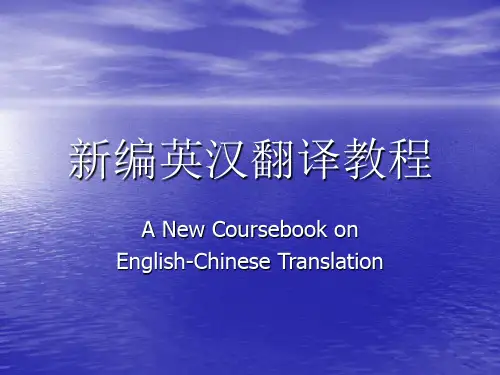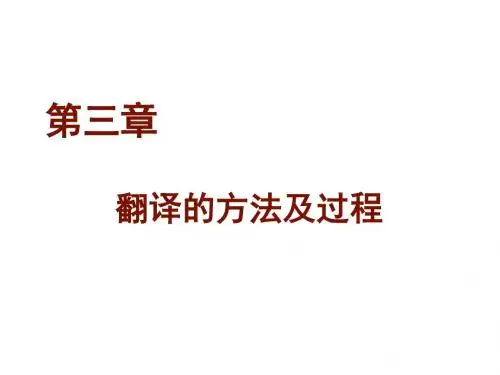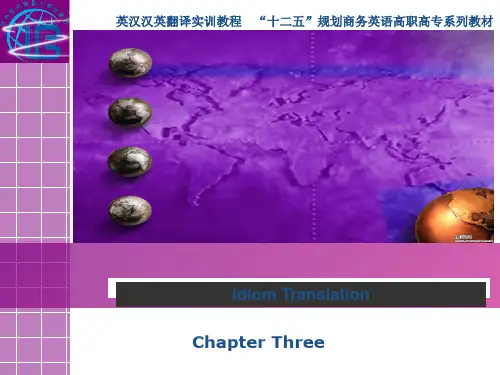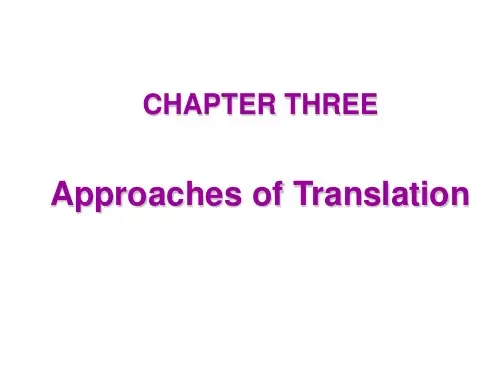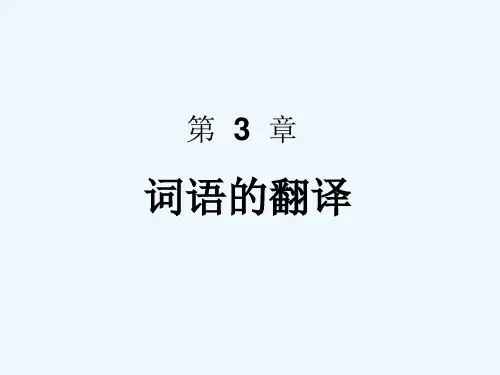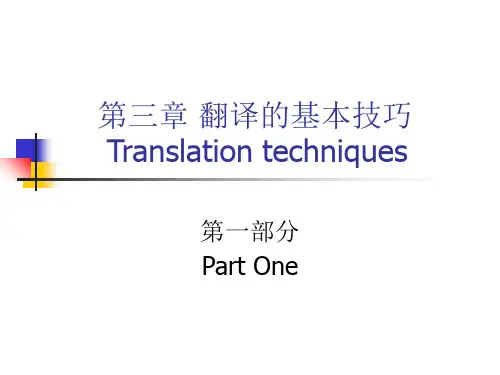定的
*词语的指称意义往往具有多重性,即一个词语具有几 种不同的指称意义.
例如:“包袱”一词既可以指用布包起来起来的包儿,又可以指 相声等曲艺节目中的笑料.
*词语的搭配关系---辨析词语多重义项的依据,也是翻 译中理解词义的重要手段。
例如:英军胜利地登上了小岛. a. The British army climbed onto the island successfully. b. The British army landed on the island successfully. “登”一词既有“爬,攀登”之意,又可理解为“登 陆”.从本句的上下文看,登这一动作的施动者是军队,对象 是小岛而非高山,“登上”意为登陆上岸,应译作land on,而 非climb onto.
c:据传说,五十年代中期,渠边那庄子有一个黄花闺女,为了抗 拒父母包办的婚姻,大白天就跑过斗渠到这屋里来上吊.这是个 上吊的好地方,屋顶上没有顶棚,弯完扭扭的木头椽子露在外面, 随便哪根椽子都可以搭上绳子. As a story goes in the mid 1950s there lived a hamlet over the other side of the gully a maiden who was in the protest against her parents’ dictatorially arranged marriage escaped in broad daylight across the gully, slipped into the hut—and hanged herself! There was no ceiling, only crooked, bare rafters overhead, conveniently accessible for a rope to hang from. A most suitable place, indeed, for such a purpose.
